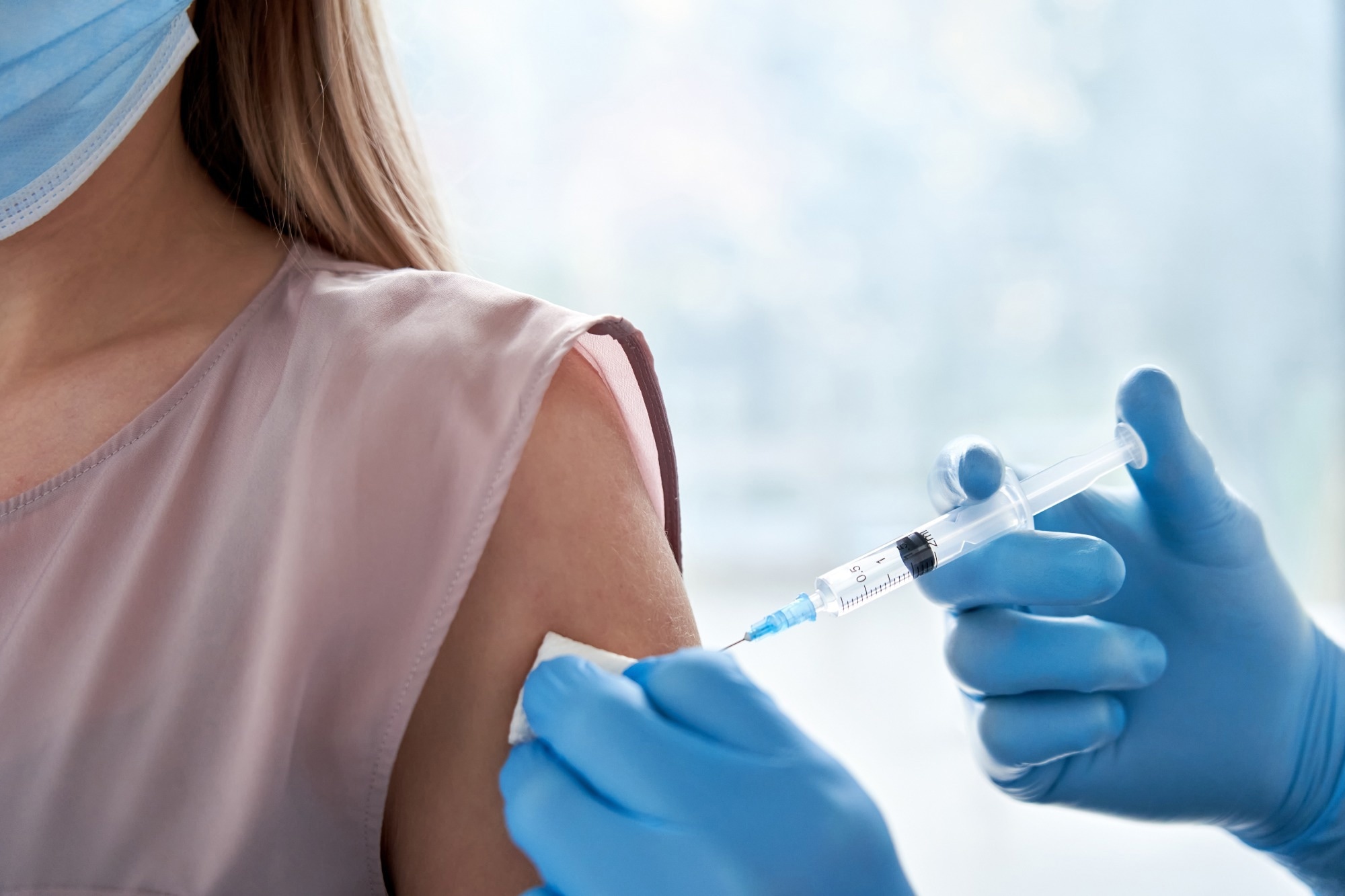The onset of the coronavirus disease 2019 (COVID-19) pandemic led to two years of mounting waves of illness and death, affecting hundreds of millions of people around the world. Even after the outbreak’s severity subsided, the potential long-term sequelae of the infection or COVID-19 vaccination continue to be a matter of concern.
A new paper published in the Vaccine Journal reports on the association of COVID-19 vaccination with menstrual cycle abnormalities.
 Study: COVID-19 vaccination and menstrual cycle characteristics: A prospective cohort study. Image Credit: GroundPicture/Shutterstock.com
Study: COVID-19 vaccination and menstrual cycle characteristics: A prospective cohort study. Image Credit: GroundPicture/Shutterstock.com
Introduction
Thousands of social media posts and vaccine safety surveillance system reports have described disruption of the menstrual cycle following vaccination with the COVID-19 vaccines. Women have reported longer, heavier, irregular periods and, in some cases, breakthrough bleeding in postmenopausal women.
This has led to many expressing concern about whether these vaccines compromise female reproductive health.
Biologically, a pathway whereby the immune response evoked by a vaccine produces a short-term effect on the endocrine master gland, the hypothalamus, and the linked pituitary-ovarian axis, is quite plausible. This could explain how vaccination could theoretically affect the menstrual cycle.
Acute and temporary effects on menstruation have been reported with typhoid, hepatitis B, and human papillomavirus (HPV) vaccines in prior research.
The current study looks at six major characteristics of the menstrual cycle in association with the menstrual cycle: length, regularity, duration of bleeding, intensity of bleeding, and period pain.
Earlier studies introduced reporting bias, lacked a control group, did not adjust for confounding factors, failed to assess menstrual characteristics other than cycle length, or lacked sufficient follow-up length.
The researchers used data from the Pregnancy Study Online (PRESTO) in the present study. This is a cohort of couples recruited to the survey online.
They were followed up from before conception, none being on fertility treatment. The study period was from January 2021 to August 2022, and the cohort included couples from the USA or Canada.
The study contained approximately 1,100 couples between 21 and 45 years of age. Questionnaires assessed them at baseline, and every eight weeks after that, for up to 12 months. They were asked about COVID-19 vaccination as well as their menstrual cycle characteristics.
What did the study show?
Of the more than one thousand participants, about 14% sent in six follow-up questionnaires, while 65% conceived within the next year. Just over one in ten began fertility treatment, and 2% stopped attempts to conceive. The rest, about 9%, stopped follow-up.
None of the participants were COVID-19 vaccinated at the outset, but almost 40% took one or more doses during the study period. Most of them took the Moderna or Pfizer vaccines, at 32% and 61%, respectively.
Among the vaccinated, seven out of eight were vaccinated from February to May 2021. The majority were better educated, with a higher income, and trying to have their first babies, compared to the unvaccinated group.
After compensating for sociodemographic factors, reproductive and lifestyle factors, and any medical conditions, the researchers estimated any differences in menstrual characteristics in relation to COVID-19 vaccination.
After adjustment, the first dose of the COVID-19 vaccine was associated with a lengthening of the next cycle by a mean of one day. The corresponding increase in the first cycle after the second dose was 1.3 days. Interestingly, the association was stronger from April 2021 to August 2022 than from January to March 2021.
By the second cycle following vaccination, these associations had weakened, indicating the effect to be temporary. Thus, long cycles became more prevalent after the first dose, from ~6% to 11%, but decreased in prevalence for the next cycle, at 7.3%.
There were no strong associations between the vaccination and menstrual cycle regularity, bleed intensity, duration of bleeding, or dysmenorrhea.
Irrespective of the vaccine brand, there was no significant change in the proportion of participants with irregular cycles (15%) after vaccination following the first or second doses. There was no change even after adjusting for a history of COVID-19 or infection with the severe acute respiratory syndrome coronavirus 2 (SARS-CoV-2).
It must be remembered that these were couples trying to conceive, not on contraception, and many were successful. Thus, they could not be followed up for more than a few months after each vaccine dose.
Also, older women were not included in the study by design. Thirdly, most participants were White college graduates.
What are the implications?
The current study shows no significant link between COVID-19 vaccination and menstrual function beyond a short delay of one day in the first cycle following each dose and an equally short-lived increase in the prevalence of long cycles. Both of these changes disappeared by the second cycle post-vaccination.
This temporary effect is probably due to immune system activation, mediated by cytokines that interfere with the hypothalamo-pituitary-ovarian (HPO) axis.
No association with fertility was observed, nor were any other menstrual cycle characteristics shown to undergo alteration in association with COVID-19 vaccination.
Taken together, these results indicate that short-term changes in menstrual cycle characteristics likely do not translate into meaningful differences in fertility.”
